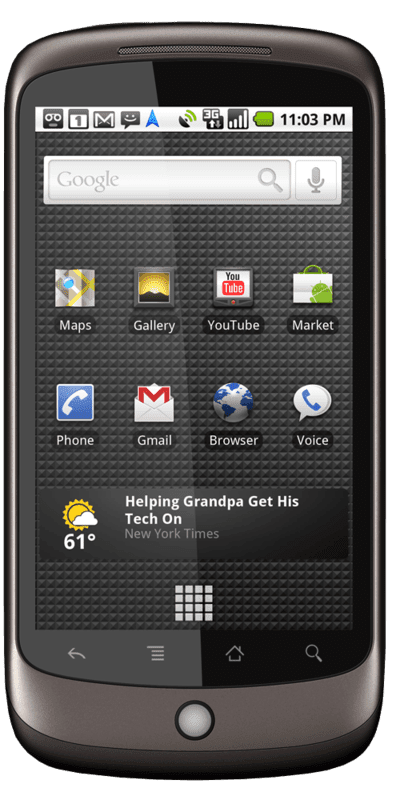
Smartphones can already do pretty much everything, right? Actually, UAB computer scientists have a few more ideas.
They’re tapping into the accelerometers, proximity sensors and other environment-aware chips packed into modern phones to help users stay safe — and keep ahead of the bad guys.
Here are seven innovations that could be coming soon to your favorite device.
1. Watching your back
Most of us are very protective of our phones. Ragib Hasan, Ph.D., an assistant professor in the UAB College of Arts and Sciences Department of Computer and Information Sciences and director of SECRETLab, wants them to return the favor. He is developing software to turn a phone into a digital wingman, using information from its camera, microphone, accelerometer and other sensors to gauge a user’s attentiveness and respond appropriately. When it detects that a person is driving, for example, it could silence all but the most important alerts. If it decides from the way that you’re walking and talking that you are drunk, it could prevent you from making bank transactions. Hasan’s code will also save important security warnings for times when you are alert, rather than groggy from sleep.
The project builds on a study by Munirul Haque, Ph.D., who recently completed a postdoctoral fellowship in Hasan’s lab, and collaborators at Marquette University. The researchers found that a phone can do a remarkably good job at sensing mood. They parsed camera images to read facial expressions and accelerometer data to judge energy expenditure (anxious people tend to pace; inactivity is often a signal of depression). Their system was able to recognize six different “affective states”: anger, disgust, fear, happiness, sadness and surprise.
Learn more: Read the paper “In Situ Affect Detection in Mobile Devices: A Multimodal Approach for Advertisement Using Social Network”
2. Learning your style
You may be only one of millions of people with an iPhone, but the way you hold your phone — and take pictures and send text messages — may be unique. Nitesh Saxena, Ph.D., an associate professor in the CIS department and director of the SPIES lab, is a pioneer in “behavioral biometrics” security research. He’s pulling together data from accelerometers, gyroscopes and proximity sensors to chart the characteristic gestures a user makes when answering a call or snapping a selfie. Once his software learns your moves, it could unlock your phone automatically — and freeze when it detects that it is in the wrong hands. A system that taps into user interactions with multiple connected devices, such as Google Glass or the new Apple Watch, would be even more secure, Saxena says.
Learn more: Read the Mix feature Swagger security: How your smartphone style could keep your digital assets safe
The Latest on: Sensor-Packed Smartphones
[google_news title=”” keyword=”Sensor-Packed Smartphones” num_posts=”10″ blurb_length=”0″ show_thumb=”left”]
via Google News
The Latest on: Sensor-Packed Smartphones
- This is one of the toughest smartphone camera comparisons I’ve ever doneon April 30, 2024 at 10:00 pm
The Xiaomi 14 Ultra may have the best camera on a smartphone I’ve used this year ... with a big 200-megapixel camera leading the pack. It’s joined by a 50MP telephoto camera with a 5x optical zoom, a ...
- Motorola Launches New Edge 50 Fusion Smartphone In Australiaon April 30, 2024 at 5:37 pm
Motorola is heading into a new premium era and has launched its new Motorola Edge 50 Fusion smartphone in Australia. Motorola are known for their cheap, feature-packed phones, and this new premium era ...
- From Vivo V30e to Google Pixel 8a: Upcoming smartphones expected to launch in May 2024on April 30, 2024 at 5:16 pm
India's smartphone market anticipates several new releases. Vivo will launch the V30e on May 2nd, featuring a sleek design and advanced camera setup. OnePlus is expected to debut its Nord 4, Samsung ...
- Best Phones Under Rs 7000 (April 2024) in Indiaon April 30, 2024 at 5:00 pm
For photography, the smartphone offers a 13MP Triple AI rear camera and a 5MP front camera sensor. Lava makes use ... The itel A70 comes with power-packed features. Despite being a budget-centric ...
- Best 5G SmartPhones Under Rs 20,000 (April 2024) in Indiaon April 30, 2024 at 5:00 pm
As the smartphone market continues to evolve, consumers are constantly on the lookout for feature-packed devices that ... and offers a 50MP Sony IMX882 main sensor, a 2MP depth sensor, and a ...
- OnePlus Nord CE 4 Review: Feature-packed mid-ranger that offers excellent valueon April 28, 2024 at 3:25 am
OnePlus Nord CE 4 thrives in the mid-range market with top-notch features like a 50MP camera, 5,500mAh battery, and AI capabilities. Its unique design ...
- HMD to Unveil New Smartphone Launch in India on April 29thon April 26, 2024 at 9:42 am
Though HMD just declared its fresh and primary lineup of self-named smartphones, the Finnish company is now gearing up to unveil its debut India HMD ...
- Latest mobile phones under Rs 20,000 with good battery life and advanced camera systemson April 26, 2024 at 5:42 am
Smartphones under Rs 20,000 offer impressive specs like 108MP cameras, 120Hz displays, and IP54 ratings. From Realme to Tecno, these devices cater to ...
- HMD to announce new smartphone launch in India on April 29thon April 25, 2024 at 12:54 pm
HMD smartphone launch in India is confirmed to take place soon. It could be the HMD Pulse, Pulse+, Pulse Pro+ and Vibe smartphones.
- Motorola's Moto G64 review: A feature-packed 5G smartphone on a budgeton April 24, 2024 at 11:11 pm
The Moto G64 boasts a display of a smooth refresh rate, a thin-and-lightweight design, a capable dual-camera system, swift performance, and a near-stock Android operating system ...
via Bing News










